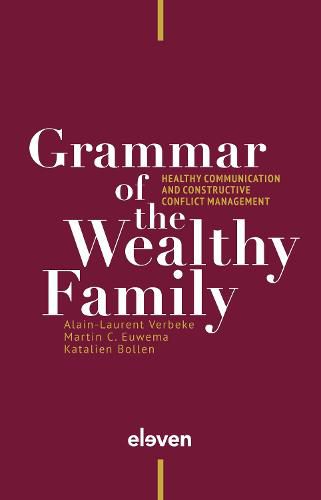Readings Newsletter
Become a Readings Member to make your shopping experience even easier.
Sign in or sign up for free!
You’re not far away from qualifying for FREE standard shipping within Australia
You’ve qualified for FREE standard shipping within Australia
The cart is loading…






This title is printed to order. This book may have been self-published. If so, we cannot guarantee the quality of the content. In the main most books will have gone through the editing process however some may not. We therefore suggest that you be aware of this before ordering this book. If in doubt check either the author or publisher’s details as we are unable to accept any returns unless they are faulty. Please contact us if you have any questions.
Every person with money and assets worries about the future: after I pass away, what will happen with the money and valuables? The real estate and the company? Estate planning is a broad area of law where private law, tax law, corporate law and private international law blend together.
Grammar of the Wealthy Family discusses communication about these important and sensitive issues within the family. Traditionally, the answers are framed top-down, within the leading generation’s tunnel vision: the head of the family decides what the future should look like. Can such planning, strictly implementing the wishes of the head of the family, be sustainable? We think a wise and mature estate planning should contribute to the flourishing of both the estate and the members of the family. Estate planning should be a bottom-up family planning, taking into account the dreams and wishes of all family members, embedded in a shared vision, mission and strategy for the family and its wealth, also for future generations. In our view, traditional estate and tax planning is only the third and last step in the process towards sustainable shareholdership. It is preceded by firstly preparing the family and secondly having the family negotiate their shared values and mission. This requires families to be educated in a process of genuine open dialogue and reflection.
The authors are Family & Business Dynamics - Governance senior experts at the Greenille Private Client Team of Deloitte Legal (Belgium, NSE), and lead the KU Leuven Centre for Business Families.
$9.00 standard shipping within Australia
FREE standard shipping within Australia for orders over $100.00
Express & International shipping calculated at checkout
This title is printed to order. This book may have been self-published. If so, we cannot guarantee the quality of the content. In the main most books will have gone through the editing process however some may not. We therefore suggest that you be aware of this before ordering this book. If in doubt check either the author or publisher’s details as we are unable to accept any returns unless they are faulty. Please contact us if you have any questions.
Every person with money and assets worries about the future: after I pass away, what will happen with the money and valuables? The real estate and the company? Estate planning is a broad area of law where private law, tax law, corporate law and private international law blend together.
Grammar of the Wealthy Family discusses communication about these important and sensitive issues within the family. Traditionally, the answers are framed top-down, within the leading generation’s tunnel vision: the head of the family decides what the future should look like. Can such planning, strictly implementing the wishes of the head of the family, be sustainable? We think a wise and mature estate planning should contribute to the flourishing of both the estate and the members of the family. Estate planning should be a bottom-up family planning, taking into account the dreams and wishes of all family members, embedded in a shared vision, mission and strategy for the family and its wealth, also for future generations. In our view, traditional estate and tax planning is only the third and last step in the process towards sustainable shareholdership. It is preceded by firstly preparing the family and secondly having the family negotiate their shared values and mission. This requires families to be educated in a process of genuine open dialogue and reflection.
The authors are Family & Business Dynamics - Governance senior experts at the Greenille Private Client Team of Deloitte Legal (Belgium, NSE), and lead the KU Leuven Centre for Business Families.